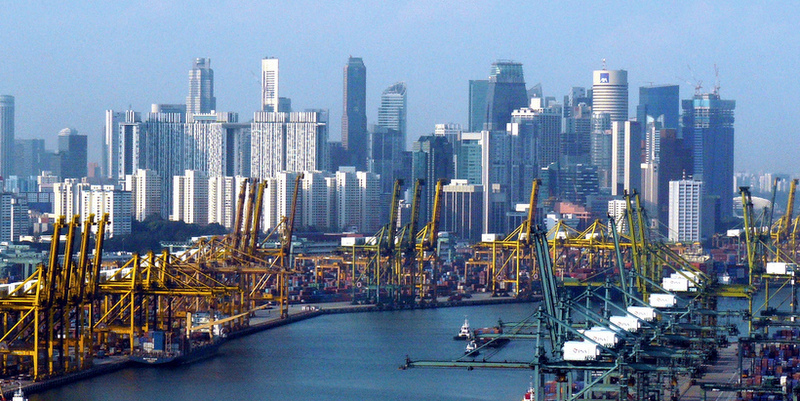
April 16, 2012, by ICCSR
Sustainability reporting on the SGX: A driver for better business?
As I laid out the name badges on the decadently dressed registration table, rifling through my bag for a Nottingham branded pen, I sat back and smiled. My guests would soon arrive, and the delicately robed perch-tables would, I hoped, be awash with neatly placed nibbles and confidently extended hands, aptly framed with the magnificent panoramic view of the Singapore docks.
As a graduate trainee working in a relatively short placement with the University of Nottingham’s ICCSR, I was eager to impress and make that much coveted word of the moment: impact. Having worked previously in sales, product and project management roles, I was confident I could cope with the challenges I’d be faced with, but with no prior knowledge of CSR I knew the learning curve would be steep.
In the wake of the 2010/11 stakeholder dialogue, it was clear that there was work to be done around engagement with alumni, students and practitioners in the field of CSR, and I was brought in to help. I couldn’t profess any great deal of knowledge on the needs of the sector, but what I did do well was network. After creating a revamped and reinvigorated LinkedIn presence for ICCSR alumni, and a new Twitter presence for the centre @NUBS_ICCSR with which to promote events, articles, jobs and the new Better Business Blog, an opportunity arose to organise a joint alumni reunion and conference with the Singapore Compact for CSR.
As a focus, we chose the voluntary sustainability reporting directive and the Singapore Stock Exchange – a challenging topic which we hoped would stir debate and discussion. Four weeks later I was sat on the eighteenth floor of a boutique hotel in the heart of Singapore’s financial district, waiting, with photographer by my side, for the first of the delegates to ascend.
As the room filled, and the speakers worked through the crowd, it was clear that the topic had inspired and intrigued. First to the floor was Ester An, Head of CSR and Manager of Corporate Affairs, CDL (City Developments Ltd), who focussed on the need to conserve while we construct in a holistic lifecycle approach to development. CSR, she added, ‘is intangible but priceless… a continuous journey to understand the needs of stakeholders’, and the benefits of reporting to branding, reputation and community are invaluable.
Thomas Thomas, Executive Director of the Singapore Compact for CSR and CEO of the ASEAN CSR Network, spoke next. He talked of improved stakeholder communication and increased investor interest, citing that companies can no longer rely on their financial resources to sustain them long-term due to increased stakeholder awareness and depleting natural resources; good corporate governance, trust and transparency hold the key to improved stakeholder communication and ultimately to increased levels of investment.
Finally, Dr Wendy Chapple, Deputy Director of The University of Nottingham’s ICCSR took the floor, highlighting the need to responsibly manage impacts in the twenty-first century, with mechanisms to promote transparency improving performance and inciting increased awareness at all levels, leading to organisational change. Mandatory regulation of CSR reporting, she added, risks creating a tick-box mind-set, and loses the essence of CSR.
Listening to the Q&A afterwards, and speaking with the delegates, I got a sense of the thirst for knowledge within the sector. Clearly CSR is rooted quite firmly in the minds of business leaders from NGOs, to MNCs to family businesses. What I know I will take forward from my placement is a sense the importance of continuity, and an appreciation of the need for creative thought and responsible action.
By Laura Higgins. Laura is Graduate Trainee at the ICCSR, Nottingham University Business School.
Photograph of Singapore Docks taken by Inijjer and reproduced under Creative Commons License. Source: http://www.flickr.com/photos/inijjer/6095923232/in/set-72157627486965912
No comments yet, fill out a comment to be the first

Leave a Reply